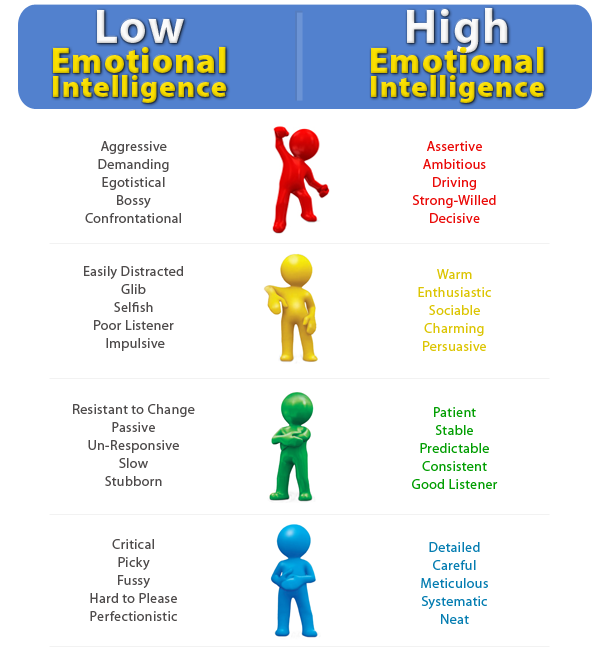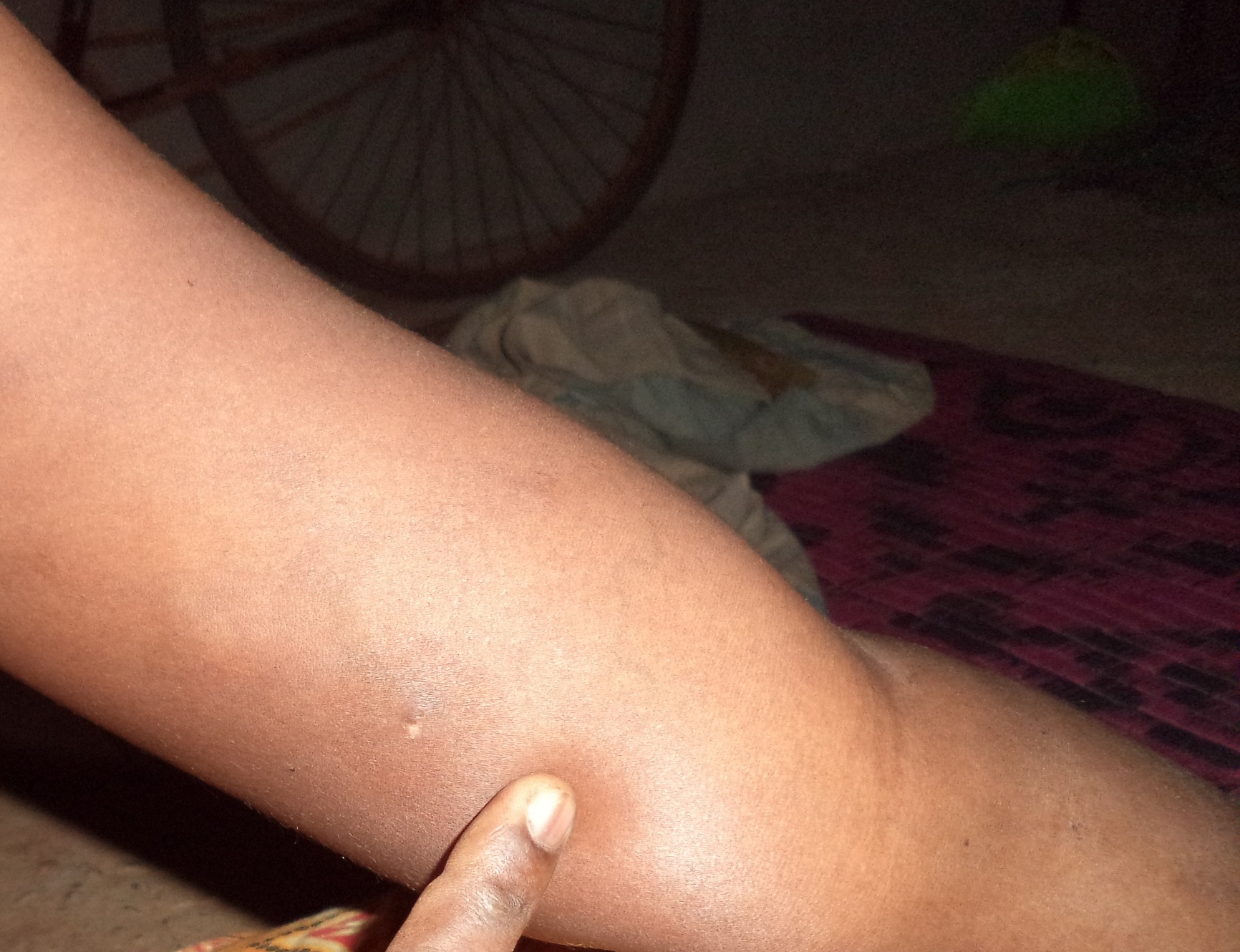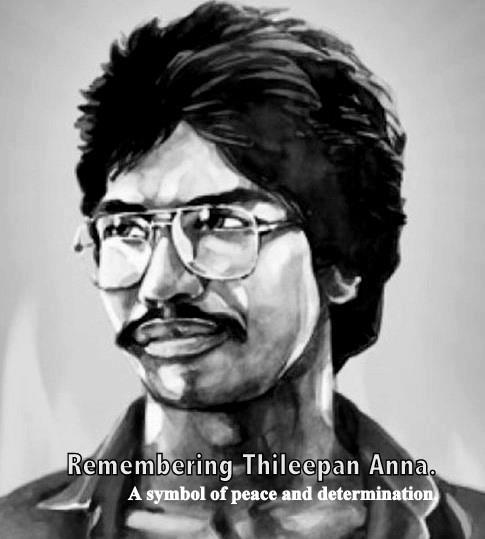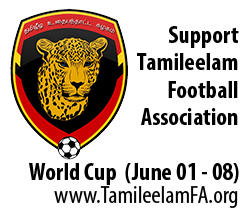Posts Tagged ‘Speak Out’
Thangachi’s Corner: Early Birds and Night OwlsBy Admin - October 23rd, 2013 |
 |
|
October 23, 2013 CTYA’s Blog has started a new Feature every other Wednesday called “Thangachi’s Corner”. “Thangachi’s Corner” is a comfortable space to discuss relatable topics and issues relevant to the Canadian Tamil youth of today. For more information about this feature or to suggest a topic, feel free to e-mail us at blogs@ctya.org! Written By: Keerthana Raveendran Yep. It’s that time of year again. Midterms. Ah, midterms, characterized by not only their long nights and early mornings, but by the dependency of coffee they force on us as well, reducing us to a state of sleep deprivation and binge study-eating to make up the difference. The midterm season has begun. Some of us, we’re night owls. We chug our caffeinated beverages and stay awake until the early hours of morning, finding progress in the still quiet of the dark once everyone is asleep. We set goals for ourselves and use sleep as a bribery tool, taunting our tired consciousness with the claim that the eyes can finally rest after one more chapter. Progress is a path to blissful reward. And then there are early birds. We rise with the sun, or at least we claim to; we’re usually awake well before that golden orb makes its way across the horizon. We too work in the still quiet of the dark, but effective studying usually comes as a result of the sleep already sacrificed—If I’m going to wake up at this ungodly hour, I cannot let my precious sleep die in vain. Progress is then a valiant gesture avenging lost rest. There is much controversy regarding whether it is more effective to be a night owl or an early bird, and while I can’t speak accurately to that, I can say this: seven to eight hours of sleep is not a luxury—it’s a necessity. And it’s probably in your best interest to claim them. While it may seem more productive to lay a few hours of sleep to the wayside in favour of memorizing another chapter, you’re actually missing out on a great deal of potential for consolidation. Let’s take a look at why that is. The sleep cycle is divided into two chunks—a period of non-REM sleep that is subsequently divided into four stages; and a period of REM, or Random Eye Movement sleep—this is when all of our dreams are constructed. While all stages of the sleep cycle have a role in the development of our brains, Stage II of that non-REM sleep is the one you’re going to want to get. It effectively puts all those hours you spent cramming to use. As it turns out, this stage consolidates long term declarative memories—that is, it reinforces the memorization of facts and figures. This way, when you wake up, you actually remember everything you learnt the night before, rather than feel as though your learning memory slipped away into unconsciousness the moment you opened your eyes. So subjecting yourself to three hours of sleep before an exam? Probably not a good idea. You may find yourself waking up in a panic and reviewing your notes yet again. Sleep gives you an edge in that it helps you rely more on your long-term memory than your short-term memory, which is only going to help you in the long run. During midterms, and the period of finals that follow all too soon, you are going to be doing a lot of studying. You will read a lot. You will have no social life. You will probably cry a little. But try not to sacrifice sleep if it can be avoided. After all, it is the furthest from being a waste of time. Now that that’s over with, go ahead and take that as an excuse to take a nap. Stage II of the sleep cycle and all. About the Author: Keerthana Raveendran, known by her flock as Thangachi, is an aspiring author with an eye for the eccentricities of the Tamil Canadian culture. As an unemployed student with a mountain load of student debt, she is currently broke, so you will probably be able to relate to her. As a writer, she has a special kind of wit that is present on the page and absent during the awkward conversations you tend have with her in person. Thangachi is currently a Masters student studying English at York University. Read More by Keerthana! |
Our Prime Minister’s Curious Stand Against Sri LankaBy Admin - October 23rd, 2013 |
 |
|
Written By: Athithan Kurukulasingam Stephen Harper, the name usually dictates a flurry of negative comments and opinions over our sometimes overzealous leader. It can be argued that this sort of treatment is warranted and somewhat justified but for once lets stand up and applaud our leader. Mr. Harper has taken a firm stand in the throwing light at the atrocities perpetrated by Sri Lanka against its minority Tamils. Next month’s Commonwealth summit in Sri Lanka will have one less member, and that is Canada. Mr. Harper has firmly stated that he will boycott the meeting. That official statement in itself could have been considered a great step forward in our efforts to unmask to the world the real truth behind the genocide; however, Mr. Harper went and took a further step and pointed out the reasons for his decision. “Canada is deeply concerned about the situation in Sri Lanka. The absence of accountability for the serious violations of human rights and international humanitarian standards during and after the civil war is unacceptable. Canada noted with concern the impeachment of the Sri Lankan Chief Justice earlier this year, and we remain disturbed by ongoing reports of intimidation and incarceration of political leaders and journalists, harassment of minorities, reported disappearances, and allegations of extra judicial killings” (Harper, 2013). With that brief statement, Mr. Harper showed that he was serious and that his threats of skipping the summit starting from 2011 was coming to fruition. Mr. Harper’s absence at next month’s summit will also be noticed beyond the physical absence. Mr. Harper has also threatened to cut the purse strings to the commonwealth organization. Canada is the second largest contributor to the commonwealth rounding in at about $20 million dollars annually (Cheadle, 2013). Having such a large financial contributor to the Commonwealth suddenly drop funding would almost be a crippling act. This is a statement that should not be taken lightly by the rest of the member nations. However, as one would expect, Sri Lankan officials immediately came back with their fabricated response. I say fabricated because Sri Lankan officials are known to misconstrue statements and leave out key details in coming out with official statements and reports. Sri Lanka’s Foreign Minister G.L Peiris claims that Canada is totally isolated in their decision (Huffington Post, 2013). Mr. Harper states that “the Commonwealth must defend the basic principles of freedom, democracy, and respect for human dignity in order to remain relevant” (Canadian Press, 2013). In a comical twist, the Foreign Minister goes on to say that the Commonwealth is not an arena to pass on judgement. Apparently every country has problems and it is up to that government to resolve those issues in lieu of the aspirations of their people (Huffington Post, 2013). Once again Sri Lanka is a country that will solve all their problems internally and will not allow of outside intervention. This theme has become all too familiar. Necessary steps have to be taken by the international community to de-legitimatize the Sri Lankan government. Read more inside |
Thoondal: Emotional Intelligence – The Key to Success?By Admin - October 15th, 2013 |
 |
|
“You’re such a cry-baby!” “Why are you so damn emotional? “Are you crazy or something?” “Man up already!” These are all phrases we hear when we let our emotions go, and expose our feelings to others around us. Some of us are more likely to do so than others, and as a result, are often labelled as “cry-babies” and “emotional wrecks”. But, is letting our feelings go really such a bad thing? Emotion, as defined by the Merriam Webster Dictionary, is “a conscious mental reaction subjectively experienced as strong feeling usually directed toward a specific object and typically accompanied by physiological and behavioral changes in the body.” So, emotions, in general, are not negative (though we do often seem to merge emotions and negative feelings into being one and the same). Then, why is it that the minute tears are made visible, we become labelled as being emotional? And…is such an emotional state really so detrimental? Freud’s work consisted of frequent reminders of how controlling our feelings could really affect our psychological states. I am sure it is also practically clear that this is never efficient. When we control our feelings continuously, we are like pop cans waiting to explode from built-up pressure. Daniel Goleman’s Emotional Intelligence, on the other hand, expresses the importance of understanding your emotions and this, I believe, is the solution. Emotions should not be controlled, but rather understood, and not just by the audience, but more importantly by ourselves. According to Goleman, emotional intelligence is the ability to recognize and understand your emotions. In doing so, we are able to further realize how our emotions affect people around us. The concept is simple. Understand how you feel, and you will be able to understand how others feel. Your relationships with others become stronger, and you become more effective in everything you do. Goleman’s notion of emotional intelligence is composed of five elements: self-awareness, self-regulation, motivation, empathy and social skills. An individual with high emotional intelligence is more in line with his/her emotions, being aware of his/her own strengths, weakness, and areas of improvement. As a self-regulator, such an individual is also capable of controlling his/her own emotions and impulses. Usually motivated, an individual with a high degree of emotional intelligence, is more productive and goal-oriented. Being empathetic towards others and strong social skills further allow such an individual to network, communicate well, and manage relationships. Having said all that, could it be that emotional intelligence is the key to success? Understanding our emotions and managing it, rather than caging them in, because we are constantly being told to control our emotions? Will that keep us on our path, focused and motivated? Well, if that’s the case, then why not give it a shot? However, I am sure we might need lessons on HOW to understand our feelings in order to do so, and I’m afraid my knowledge stops here. If you’ve got any insight into that, please do share! Maybe we might be on to something! |
The Bigger Picture, Take a step back.By Admin - October 10th, 2013 |
 |
|
Written By: Shankar Raj When you look through your two eyes, in most cases it cannot capture the beauty of what is around you. Your eyes are only capable of capturing a certain distance, you may noticed that if you take a step back your brain starts to provide you a better understanding of the environment you are in. You start to develop a stronger understanding of the vibe around you and the pace of the world around you. In our generation many of us grew up with some knowledge of the fight for the freedom of our people. We can recall many symbols of our porattam, whether it is our beautiful Puli Kodi that instills us with great pride. Or our heroic, unwavering leader who inspired us to have great self respect for being Thamil, our Thalaivar Velupillai Prabharan. Or the Kalarais which remind us of the divinity and power of the sacrifices each one of our Maaveerar gave us. And many of us recall a great sense of pride and fire to strike back when people challenge us of our beliefs. Although it is great we are defend ourselves’ we should also take the necessary steps to educate ourselves of many important things Anton Balasingham, Lt. Col. Thileepan, and countless heroes such as Kittu Anna, who have left behind messages for us. Even in Thalaivar’s speeches and interviews where we see tons of foreshadowing of the Eelam struggle. It takes a great deal of self initiative to educate yourself using books such as the Will to Freedom, War and Peace, or a Fleeting Moment in my country, or reach out to local Tamil organizations who seek to protect Tamil identity. I am no one to tell anyone what they should and shouldn’t do but, putting aside some time to find out the fundamentals of your identity should be considered as an essential part of discovering who we are. As a generation growing up with access to up and coming technology, and state of the art education systems, as Tamil Youth we can seek to achieve great heights in many industries. We have great potential to become great leaders in our community and rebuild our homeland Tamileelam, when it is finally liberated from the chains of the oppressive Srilankan government and external forces. At a moment in history when there are vast amounts of questions and plumbs of smoke, what I am saying to you today is, we should take a few steps back and look at the entire picture of the Eelam struggle. Look at the progress we are making as a the Tamileelam movement. Let us recall our principles, and what those who have genuinely fought for the Eelam struggle have told us. Let put aside little, little issues that are between us and stand united as we take move forward into the vast unknown the future holds for us with a positive outlook. As when one day the smoke does clear and the Eelam struggle is justified as a genuine struggle among others in history, we will rejoice in our beautiful Tamileelam. |
Generation Y – Social Media Challenge ConclusionBy Admin - October 10th, 2013 |
 |
|
Written By: Senthamil Stefi For those of you who read my last piece, you would know that I tested out the theory of Generation Y’s dependence on social media. I had challenged myself to four months off social media but only lasted for one. I learned a lot during that month. But I also learned a lot coming back to social media after that month. During that one month I realized the amount of pressure and role social media had on an individual’s life. It’s a constant attachment. An extension of one’s self. It’s an extension that follows you wherever you go, even to bed as you sleep next to your smart phone. It’s a constant doorway into a social atmosphere not really giving you room to be alone and not be judged. Being off social media, I felt a huge surge of being “free”. It felt like it was just me and the few best friends I had as contacts on my phone. It felt like I was free of any sort of judgment and that I could make any decisions or discoveries I wanted. It felt nice to not be connected to the social world. But that was short lived. I soon realized that not having social media felt like I was keeping a part of myself inside. It wasn’t necessarily a hold onto the external world in a negative way. It was a medium that I used to express myself that was taken away. I guess I do have a dependence on social media but not for validation but a way to convey thoughts and ideas that come across my mind at that moment. Having social media in our generation is not something that should be frowned upon but should be applauded. It’s not only a way to keep up to date with your friends but it’s a way to release your emotions at your own will…whether it be tweeting about life on Twitter, or making a vlog on YouTube, or posting a picture of your favourite dish on FoodShootr. Like researchers at Harvard stated, talking about one’s self gives us a sense of satisfaction that having a nice slice of delicious cake gives us. I do believe that we may need time away from social media at times so that we aren’t always posting about our lives and can actually have time alone. But having the technology to do so is something truly amazing. I really believe it’s a therapist in disguise… a medium that you can talk to even if it’s not acknowledged by friends or relatives. Just posting something is an internal satisfaction in itself as we express ourselves. Social media is a dependence… but I would say it is healthy within its limits. |
Thangachi’s Corner: Try, Try, Try AgainBy Admin - October 9th, 2013 |
 |
|
October 9, 2013 Thangachi’s Corner: Try, Try, Try Again CTYA’s Blog has started a new Feature every other Wednesday called “Thangachi’s Corner”. “Thangachi’s Corner” is a comfortable space to discuss relatable topics and issues relevant to the Canadian Tamil youth of today. For more information about this feature or to suggest a topic, feel free to e-mail us at blogs@ctya.org! Written By: Keerthana Raveendran “‘Tis a lesson you should heed: Try, try, try again. If at first you don’t succeed, Try, try, try again.” – Thomas H. Palmer, Teacher’s Manual When that quote first hit the public, it spread like auntie’s cooking around the dinner table. The fact that we still say it a hundred and seventy years down the road is a testament to its power. But what our friend Thomas H. Palmer failed to mention, though, is the crippling, hindering, depressing pain that failure often brings. You know the one—when you spend hours studying for an exam, only to find that you haven’t quite met the goal you’d set for yourself. Or when you spend weeks of time and effort to undergo an endeavour close to your heart, only to discover that you’d gone about it the wrong way and have to start back at square one. Failure comes in all shapes and sizes but drops the same cold weight in your gut. Sometimes you can see it coming. You know perfectly well that victory is an elusive mistress, so you prepare yourself for defeat, only to find that you can never prepare yourself for it, not really. Nothing makes it pleasant or tolerable; nothing removes the disappointment in being unable to achieve that goal, and you find yourself left to sulk and wallow in your self-pity. But if you are going to wallow, like we all do from time to time, do it only for a day before chiding yourself with a, Are you serious? Pull yourself together already! Because all things considered, Palmer’s right. Perseverance goes a long way and while it seems as though it’s more convenient down on the ground where you’ve been shoved, you’re probably not going to find what you’re looking for down there. Let’s be honest: you’re going to fail—a lot. But you’re also going to succeed if you give yourself the time and opportunity to do it. After all, when you compare a sole attempt with ten, your chances of success are far better with the latter. About the Author: Keerthana Raveendran, known by her flock as Thangachi, is an aspiring author with an eye for the eccentricities of the Tamil Canadian culture. As an unemployed student with a mountain load of student debt, she is currently broke, so you will probably be able to relate to her. As a writer, she has a special kind of wit that is present on the page and absent during the awkward conversations you tend have with her in person. Thangachi is currently a Masters student studying English at York University. |
The Far Reaches of Systematic GenocideBy Admin - October 5th, 2013 |
 |
|
Written By: Athithan Kurukulasingam When one thinks about genocide, they look at the very root of the word. Genocide consists of the systematic eradication of a group within a region. Oftentimes, the group is the noticeable minority and face hardships far beyond the reaches of our comfortable way of life here in the west. There is a problem however, when you look at genocide in its most singular form, many of the other atrocities that are committed goes unnoticed. Within Sri Lanka, the Sri-Lankan Government would like the world to believe that the ‘war’ is over and that sense of normalcy is returning to the “nation”. However, it must be emphasized that this is far from the truth. It only takes a brief glance to notice the serious cases of genocide that are still taking place within this so called nation. In late August of 2013, in the Kilinochchi villages of Tamil Eelam, Tamil women were faced with coercive and underhanded tactics by Sinhalese doctors for ‘voluntary’ population control. At the outset, the terminology must be clarified. For purposes of this piece, the term “birth control,” also known as “family planning” and “planned parenthood” will be used in sync and refers to the voluntary planning and action by individuals to have the number of children they want, when and if they want them. In contrast “population control” is used to reiterate the belief that for the betterment of society in light of overpopulation, individuals should reduce the number of children they have (Robert, 1973). The women of the Kilinochchi villages were approached by hospital staff and volunteers and were informed that any woman with a child under the age of five should come to the hospital the following day to weigh their children and to receive a vaccination. Many of these women put their faith in the hands of an authority figure out of good faith. It must be noted that these women felt that they would get the best service from these big doctors from the city. Once there the problems started to arise. “Upon arrival at the hospital, the doctors and nurses used coercive language and manipulated medical information to convince the women to take Progestogen-only sub dermal implants (POSDIs), a long-term hormonal birth control inserted under the skin of a woman’s upper arm” (Social Architects, 2013). |
My Mother …By Admin - October 5th, 2013 |
 |
|
Written by: Gayathiri Sivakumar When I was a little girl, my mother told me that if I studied well, maintained my fair skin, and was a ‘good’ girl, did not talk to boys, I would land myself a Prince. She said, if I grew up with how she suggested, then everyone would want to marry me. I dutifully followed her command, after all, I wanted to ensure that I married a Prince. I maintained my A-student status, I stayed out of the sun, I was polite, obedient and meek, and I hardly talked to boys (unless it was school-related).Until I was in high school that is. It was then at some point, where I felt like I was not living my own life. It felt like I was living out my mother’s life. I felt entrapped, although I was a young teenager, here I was, pretending to be someone I was really not. This feeling was really brought on when my mother began to parade me around to the community, letting them know what a catch I was. But it was all superficial. I met boys like myself, successful, but unhappy. Puppets really. I felt like how Jeyam Ravi felt in Santhosh Subramanium. I felt I had to please her. I resented my mother. I blamed her continuously, I felt like she was the cause of my unhappiness. I felt that I lived a sheltered life, one where I was made into a socially awkward person, despite being born in Canada, was because of her repressive nature. I knew nothing of the popular bands, brands, or anything – I was totally forbidden from particiapting in normal activities as such. I felt like I was reprived of life and happiness because of the sheltered life she raised me in. |
Thoondal: In Memory of Thileepan AnnaBy Admin - October 2nd, 2013 |
 |
|
Written By: Shayanika Suresh Thileepan Anna… For as long as I can remember, this is the name that is uttered whenever the words dedication, determination, patriotism, peace and sacrifice come into discussion in our community. We all say, in one moment or in another, that we are ready to do anything for someone or something, but, Thileepan Anna, the intelligent and dedicated student whose ambition was to become a doctor, was one of those few individuals. Choosing non-violence over weapons, on the 15th Thileepan Anna began his own battle against hunger in order to raise awareness of the dire situation his people were in. The impact of this starvation took his life eleven days later, and although, none of his demands were met, his death brought hundreds and thousands of people together as a community. Thileepan Anna could have become a doctor and saved hundreds of lives today. But, he realized the importance of standing up in 1987, and questioning the injustice around him. He took the first step, not knowing what would happen. Without even the smallest glimpse of hope, he did what he could in that moment. That is the courage that all youth should carry within themselves. The determination and dedication that Thileepan Anna showed twenty-six years ago are values that he would want youth to continue to depict today! As a youth, the message that I wish to put forth today, in the memory of Thileepan Anna, is this: We may not be able to control the number of years that we live, but we can most definitely determine what we can or cannot do, and that is a liberty that has been denied to many throughout history. As such, we are indeed privileged, but what have we done in return? Remember your roots, embrace your identity, and stand strong in the face of obstacles. Every one of us was born to lead, in one way or another. Choose your path and do not stray from it. Forget your fears, and take that first step. The rest of your journey will unfold. |
Thangachi’s Corner: The Elusive Career PathBy Editor - September 24th, 2013 |
 |
|
CTYA’s Blog has started a new Feature every other Wednesday called “Thangachi’s Corner”. “Thangachi’s Corner” is a comfortable space to discuss relatable topics and issues relevant to the Canadian Tamil youth of today. For more information about this feature or to suggest a topic, feel free to e-mail us at blogs@ctya.org! Written By: Keerthana Raveendran When I first told my family that I wanted to become an elementary school teacher, they thought I was crazy. You see, up until a few years ago, my ambitions were directed towards medicine. During high school, I happily put myself through the three main sciences: Biology, Chemistry and Physics; and completed a Neuroscience degree throughout my undergraduate years, subjecting myself to hours of talking to the wall as I worked through the material, or otherwise, pages and pages of re-written notes in the hope that one of these rewrites, it’s going to sink in; as well as a subconscious, deep-rooted dislike of my alarm clock every morning. And through all of this madness, I found myself not only tutoring, volunteering and mentoring, but doing so quite happily on an extra-curricular basis. So then when I finally came to my senses and applied to teacher’s college after graduation, it was due to a culmination of: 1) No longer kidding myself that medicine is the career path for me; 2) Having way more fun teaching through a program that had nothing to do with medicine, than is allowed for someone who was filling out applications for med and dental; and 3) Meeting people who were far more capable, and most importantly, more motivated and passionate about the career than myself. Because that, I found, is what’s important. |

